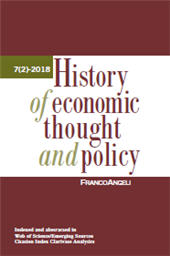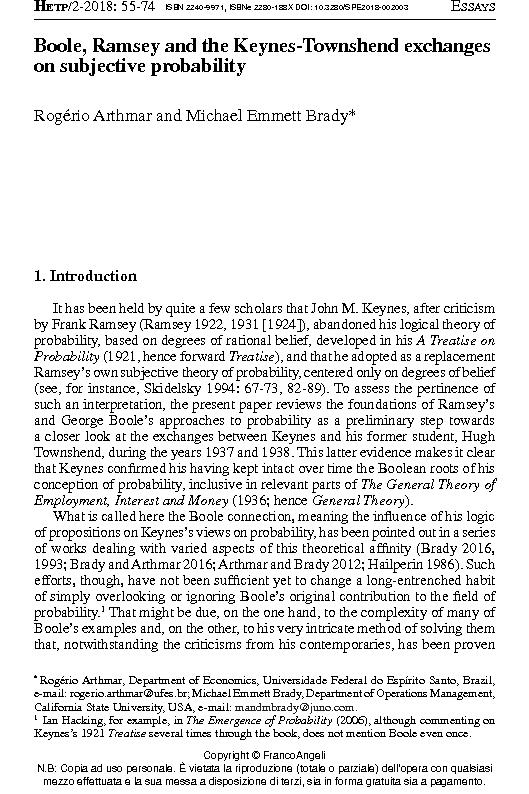Boole, Ramsey and the Keynes-Townshend exchanges on subjective probability
55-74 p.
Contrary to what is accepted in many quarters, John M. Keynes actually rejected Frank Ramsey's subjective theory of probability, in general. He did accept, though, Ramsey's betting quotient approach, but only in the special case where the weight of the evidence w equaled 1, so that all the probabilities were linear, additive, single number answers. In general, however, Keynes's probabilities were indeterminate, that is, interval valued with the characteristic of being non-additive and nonlinear because the weight of evidence w was generally less than 1. The Boolean roots of Keynes's approach to probability and his often-neglected exchanges with Hugh Townshend in 1937-38 provide strong evidence that Keynes never changed his mind on the subjective approach to probability.
It is shown that, for Ramsey, the degree of belief is the confidence a decision maker has in the betting odds while, for Keynes, it is the degree of 'rational' or logical belief based on George Boole's logic of propositions. [Publisher's text]
Forma parte de
History of Economic Thought and Policy : 2, 2018-
Artículos del mismo número (disponibles individualmente)
-
Información
Código DOI: 10.3280/SPE2018-002003
ISSN: 2280-188X
KEYWORDS
- Probability, risk, uncertainty, decision-making, weight of evidence



